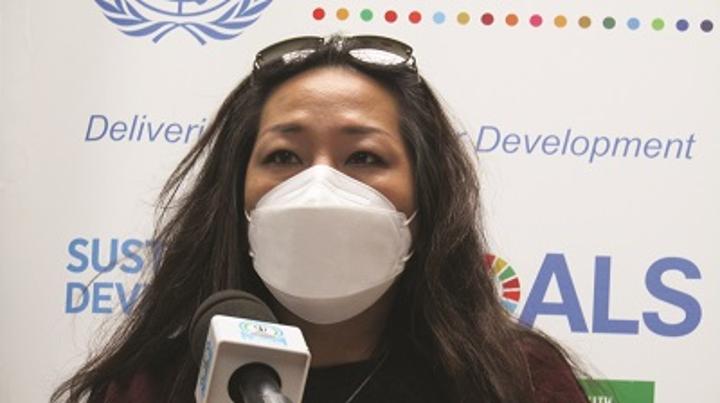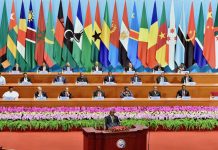Africa-Press – Lesotho. The Government of Japan donated consignment of canned fish worth M21 million to the Ministry of Education and Training (MoET) through the World Food Programme (WFP) and
will be provided to vulnerable learners in Early Childhood Development Centres. Speaking at the press conference WFP Acting Country Director and United Nations (UN) Representative for Lesotho Hsunhee
Marian Yun shared that 1.6 billion children over 190 countries could not attend schools and universities due to Coronavirus (COVID-19) pandemic and that has
let to children not getting nutritious meals. “WFP has been supporting the Ministry of Education and Training in implementing school feeding programmes since 1965.
The provision of school meals is critical in improving access to food as well as nutritional status to primary school learners given the nutrition challenges
faced by children in Lesotho. School feeding is one of the largest safety-nets programmes in the country that help in the fight against poor nutrition and
food insecurity. While at school, the learners receive two meals a day, a hot morning porridge and lunch meal of papa with either beans or fish,” Yun said.
The Minister of Education and Training Hon. Ntlhoi Motsamai stated that the handover marks yet another gesture of generosity and support towards the school feeding programme in an effort to address
challenges such as stagnant enrolment rates and high dropout rate. She explained that over the years, this invaluable contribution has made school feeding one of the largest safety-net programmes in Lesotho.
“Studies have shown a well-designed school feeding programme can be a solution for some of
the bottle necks persisting in our education system,” she said. She added that the feeding programme was championed in some schools in the Maseru district by Save the Children‘s Fund
(SCF) as far back as 1961. Then four years later (1965) the WFP assumed the
important role of facilitating the feeding of school children and its extension to cover the entire country. She further said the provision of school meals has
proven to be critical in addressing food insecurity and nutritional challenges faced by many Basotho children from underprivileged families. The Minister furthered, “the MoET recognises
school feeding as an investment and not expenditure. Therefore, evidence suggest that improved nutrition leads to improved cognitive capacities of children”.
She said other benefits of school feeding include improved school attendance. Adding that they are aware that many children attend school because it is a
place where they can access a decent meal. Motsamai picked that hunger and malnutrition have negative effects on the physical and mental health of children as well as
their behavioural and emotional development, therefore children are the core of the school feeding policy. “This augurs well with the rights of the child
especially Article 4 on the protection of rights, which requires government to create environments where children can grow and reach their full potential,”
Motsamai added. “I am highly appreciative of the WFP’s commitment and continued effort to mobilise resources to support the school feeding programme and related activities such
as capacity building towards school feeding management within the MoET. The fish was made for on-site feeding at schools, but due to COVID-19 and subsequent closure of schools in March this year, the fish will be provided at
take home as Take-home Ratio to about 29,600 vulnerable learners in Early Childhood Development Centres which will reach a total of 118,400 beneficiaries,” Motsamai
explained. She said the MoET had already changed the school feeding modality after COVID-19 lockdown to a take home ration mode targeting the vulnerable children in schools.
The take home ration that continues to be run by MOET is currently for food that was meant for school feeding during this academic year. The Minister said this will ensure that
children remain healthy and ready to get back to school as soon as National COVID-19 Secretariat (NACOSEC) gives the green light for the safe opening of schools in totality other than for external examination classes as is the case at present.
For More News And Analysis About Lesotho Follow Africa-Press






